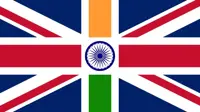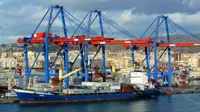Should we trust Musharraf?
24 Apr 2006
| |
 Prime minister Manmohan Singh's Srinagar declaration last month evoked a muted response from Islamabad. But it does seem to have breathed new life into the flagging peace process. Since then the Indian High Commissioner to Islamabad has visited Delhi and S K Lambah and Tariq Aziz resumed their back channel talks. A visit to Pakistan by the prime minister seems to be on the cards.
Prime minister Manmohan Singh's Srinagar declaration last month evoked a muted response from Islamabad. But it does seem to have breathed new life into the flagging peace process. Since then the Indian High Commissioner to Islamabad has visited Delhi and S K Lambah and Tariq Aziz resumed their back channel talks. A visit to Pakistan by the prime minister seems to be on the cards.
But the imminence of a further round of talks at the highest level has revived a question that sceptics have been posing ever since President Musharraf's Agra visit in 2001, " Can we trust Musharraf?" This question is often asked rhetorically, as if the answer were self-evident. But when it is not, it is shorthand for a more valid concern — can India rely upon his government to fulfil the commitments it will make as part of a future peace settlement ?
In a sense the question is rhetorical. The word 'trust' should not form a part of the lexicon of international relations. Nations are driven by interest, not friendship or enmity. You can only, therefore, 'trust' another nation to the extent, and during the time that its national interest converges with yours.
India's mistrust of Pakistan's sincerity originates in the bruising experience of the Simla agreement, in which Bhutto made promises to meet Mrs. Gandhi and turn the LoC into the international boundary as soon as the Pakistani prisoners of war had been repatriated, territory seized in the west by both countries returned, and full diplomatic relations restored, but went back upon it within weeks of returning to Rawalpindi.
But the Simla agreement failed precisely because it was based only upon 'trust'. Mrs. Gandhi 'trusted' commitments made by Bhutto to do what was completely opposed to Pakistan's national interest after she had let go of all the levers that India could have used to enforce compliance. It therefore ranks as the greatest foreign policy blunder of a still young nation.
Pakistan's perception of its national interest is very different today. The seismic change occurred in the days after 9 / 11, but the grounds for it were prepared over the previous decade. The '90s saw Pakistan move from infant to a more mature nationhood. A third generation of Pakistanis was emerging from schools and colleges and taking over the running of the nation. This generation felt no ambivalence about its Pakistani identity. But for precisely that reason, it also felt less compelled to assert it through relentless confrontation with India, the 'mother' nation from which Pakistan had torn itself away.
Growing maturity resulted in a shift from a negative approach nation-building to a positive approach — the building of a prosperous, forward looking nation, the improvement of education and health, and the ending of unemployment. This was reflected in the preoccupation of the electorate during elections held during the decade with issues of roti, kapda, and makaan.
Pakistan's maturing intelligentsia realised that the policies adopted, and institutions created, by the national security state to shore up the country's identity though the negative route of confrontation, had become obstacles to the construction of a positive identity through nation — building. five decades of swollen military budgets had not secured Kashmir but had starved the nation of social development. Its health system was non-existent, its educational system in tatters, and the gap in both was being filled by Islamic fundamentalist organisations funded through private donations.
External developments also conspired to sharpen the disenchantment with the institutions of the national security state. Citing Pakistan's nuclear weapons programme the US cut off both military and economic aid in 1990. A foreign exchange crunch resulted. The Afghan war had ended but the Talibanisation of Pakistan continued. This led to growing sectarian strife within the country, but the national security state was reluctant to curb it because it was relying on some of the same elements to conduct the proxy war in Kashmir.
Sectarian strife, Talibanisation and Kashmir kept foreign investment away, and the cut-off of foreign aid after the nuclear weapons tests in 1998 turned the foreign exchange shortage into a crisis. These developments conspired with several poor harvests in the '90s to give Pakistan a decade of stagnation that its intelligentsia has dubbed 'the lost decade'.
Musharraf had begun to respond to the compulsions generated by the failures of the '90s within months of seizing power. But his attempts to stop the Jihadis from flaunting their weapons, to ban donation boxes for sectarian causes, repeal the blasphemy laws, tax traders and impose customs duties on the huge clandestine imports funnelled through the Pashtoon tribal area, met with no initial success.
9/11 changed all that. It enabled Musharraf to turn a crisis into an opportunity and begin to implement his pet project, of turning Pakistan into a modern state on the lines of Kemal Ataturk's Turkey. Within 16 months he had cracked down on non-Kashmir related militias, rescheduled nearly all of Pakistan's foreign debt and opened new lines of credit that ended the foreign exchange crisis and put the country back on a 7-even per cent growth path.
But 9/11 also turned 'Uncle Sam' overnight from the mainstay of the national security state into the principal threat to its survival. Faced with Colin Powell's threat of an imminent destruction of his nuclear and other military installations Musharraf had no option but to join the war against the Taliban. But this snapped the alliance between the armed forces and the religious establishment that Gen. Zia-ul-Haq had made the foundation of the national security state.
While the army initially welcomed the resumption of military and other ties with the US, it found itself allied with a power that all the mullahs and, according to the Pew Research Group's surveys, an estimated 85 to 90 per cent of Pakistanis thought of as their enemy.
The one issue on which the bulk of the religious establishment, the people and the intelligentsia were in agreement was the benefit that would accrue from ending the confrontation with India. Not only had it outlived its usefulness, but it was the seed from which nearly all of Pakistan's problems in the '90s and the first years of the new millennium had sprouted. This realisation has crystallised into a palpable impatience to leave the past behind that shows no sign of weakening.
A recent poll conducted by the British High Commission in Islamabad showed that people rated Kashmir No.9 on their list of priorities — 80 per cent of the respondents said they wanted good relations with India and this figure dropped only by 8 per cent when the respondents were asked whether they would still do so if there was no progress on Kashmir. It makes it easier to understand the decisiveness with which Musharraf has been moving way from five-decade old Pakistani positions on Kashmir.
Since his first meeting with Dr. Manmohan Singh, Musharraf has told his people to stop thinking of Kashmir as their birthright and accept that it will never become a part of Pakistan; stop harping on the UN resolutions, and start thinking of an ethnically differentiated solution for the different parts of the state that will restore their right to govern themselves within a framework that safeguards Pakistan's (and India's) national interest.
Proof that he is serious is furnished by his abandonment of the pro-Pakistan Hurriyat led by Ali Shah Geelani, and his decision to use the moderate Hurriyat under Mirwaiz Umar Farouq as his sounding board for assessing Kashmiri opinion. It is difficult to think of another leader, democratic or otherwise, who has shown so much courage in weaning his country away from entrenched ideological positions. Certainly no Indian government has even come close.
This 'U turn', as his detractors call it, has predictably caused an earthquake in the Pakistan,s security establishment and made him deeply unpopular with large sections of it. Musharraf is able to continue down this road only because it too is increasingly aware of the quagmire into which it is being sucked in Waziristan and Balochistan, and the need to reduce the number of fronts on which the military is engaged. But that grudging support may not last.
Voices are already being raised within it that this is the wrong moment to make any deal with India because Pakistan has never been so weak and India never so strong. "Wait a while till the playing field become more even", these sirens whisper. Delhi's indecision on whether or not to engage with Musharraf on his proposals for Kashmir , is playing into their hands.
* The author, a noted analyst and commentator, is a former editor of the Hindustan Times, The Economic Times and The Financial Express, and a former information adviser to the prime minister of India. He is the author of several books including, The Perilous Road to the Market: The Political Economy of Reform in Russia, India and China, and Kashmir 1947: The Origins of a Dispute, and a regular columnist with several leading publications.
























